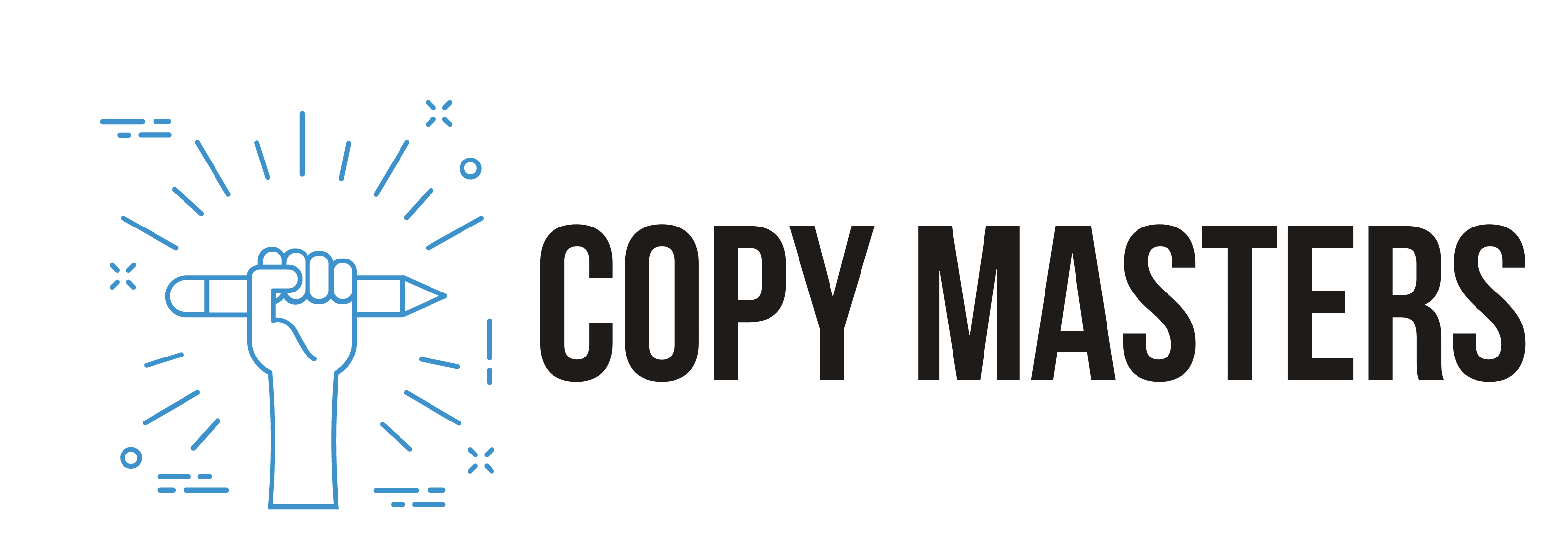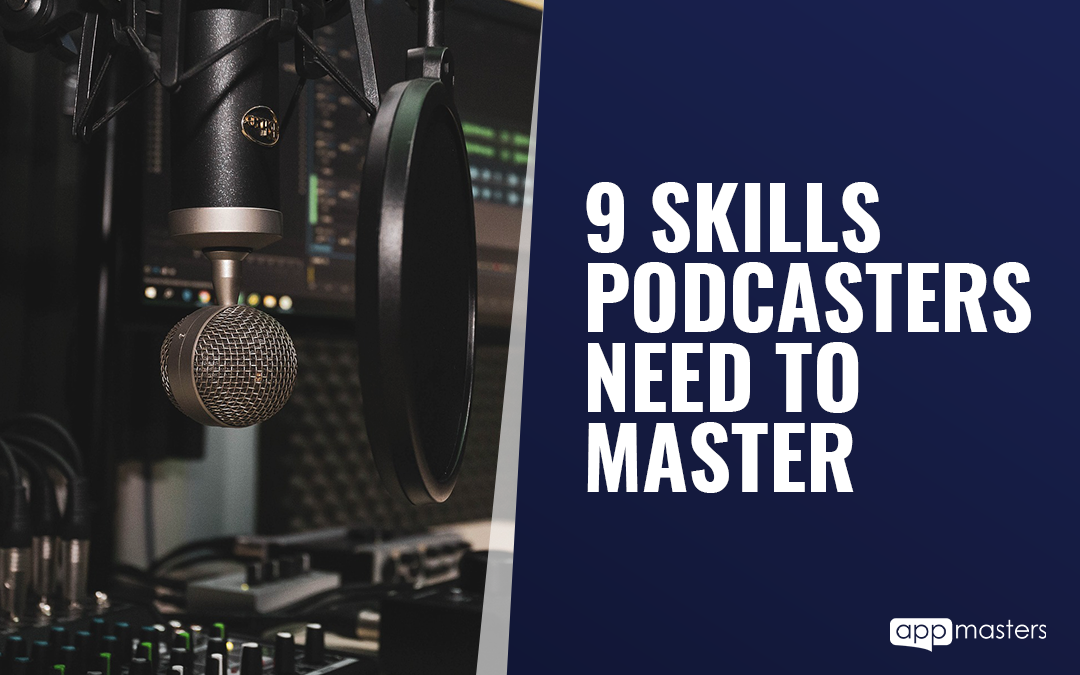Are you wondering what are the set of skills you need to master to be a successful podcaster? Want to learn the secrets to be an expert in podcasting?
Podcasting is not easy because it is more than just speaking on the microphone. Podcasters also do interviews and should be very conversational, which is not a gift endowed to everyone.
If you are into podcasting and want to be successful in this craft, here are the skills that you need to master.
1. Audience and niche

When you do a podcast, you should focus on a particular group of people. It is very important that you know your audience and niche very well because your topics and all your marketing efforts will be targeted towards them.
There are no podcast designed for everyone, otherwise, your show will lack personality. When your podcasts are too general, you will not have a core audience so no one will listen to your podcast regularly.
“Really understand why you are setting up the podcast – that lays the foundation. Who is going to listen to it? If you don’t do that, what happens is you get halfway through your podcast and you’re wondering: what next?” podcast consultant Viv Oyolu said.
Jon Moonie, who produces a monthly podcast on Watford FC called “From the Rockery End” also agrees with the importance of audience and niche. He also suggests sports as a good example of a niche.
“The strength of podcasts is the niche – knowing that you’re serving a small group of people really well. Sport lends itself well because everyone has an opinion on sport,” Moonie said.
Tip: Familiarize your audience and niche and focus your content on them.
2. Speaking skills

Podcasters speak a lot and that is given because podcasts are episodic series of audio or video files. The challenge here is what to say to keep your audience engaged and convince them to subscribe to your podcast.
Most can speak but not everyone can be engaging. You need good communication skills to keep your listeners glued in your podcasts but don’t worry because this thing can be learned over time. If you regularly host podcasts, your communication skills will improve and soon enough, you will develop a natural and easygoing flow while speaking.
Also, you can keep your listeners by using the power of storytelling, providing awesome content and by keeping the conversation interesting. You can also invite speakers for a fun and informative interview or involve your listeners to keep your podcast more engaging.
Tip: Continue to host regular podcasts to improve your speaking skills. Also, ensure that your audio quality is exceptional to make listening smoother and easier for your audience.
3. Listen with empathy and address your listeners’ pain points

Aside from speaking, good podcasters need to learn empathy to connect to their listeners. When you do a podcast, you also need to build an effective relationship with your audience. You should make your content relatable to your listeners because this is one of the things that make them stick around.
People listen when they find something in common between them and the speaker. For example, if your niche is about mobile apps, they follow you because they are interested in the same topic.
If you find something challenging about your niche, feel free to share it because, more likely, your listeners also experience it and are looking for a solution about the same concern. Once you find the solution, share it with them because they will surely find it helpful.
Keep your content relevant and helpful to your listeners and they will keep coming back to you. They will see you as someone who offers something that they need every time you address their pain points. Make your podcast their number 1 go-to channel when they need an answer to their questions about your niche.
Tip: Put yourself in your audience’s shoe. Ask what things they need to know, what problems they need to solve and cover that in your content.
4. Use voice to convey emotion

Good podcasters are engaging while the bad ones are dull. You need to learn the art of using your voice to convey emotions and keep your episode fun and captivating to your listeners.
Convince your audience that your topic is fun when it is, sound serious when you need to and be jolly when you bring good news to them. Otherwise, you’ll sound like a robot if you speak in a monotone and it’s not engaging at all. It’s not easy but this can also be learned over time. In fact, try to ask long-time podcasters and they’ll tell you that their 100th episode doesn’t sound the same as their first one.
The more frequent you do podcasting, the more you will learn the art of speaking with emotions. You will eventually learn how to speak conversationally under pressure and how to add emotion when you deliver your words.
Tip: Speak passionately by letting your personality take the stage.
5. Time management and flexibility

Time management is necessary for podcasting. Yes, it’s enjoyable to watch or hear an episode but it takes a lot of work to produce a quality show on a regular basis.
If you promise new content on a particular day of the week, you have to deliver. A number of podcasters release new episodes weekly or twice a week, so just imagine the effort they put on that.
Another challenging part with podcasting is you have to collaborate with others especially if you hold interviews. You have to work around your schedule and theirs, so you should learn to be flexible. Advanced podcasters are good at bending their schedule without breaking it and this is a skill that you have to learn.
Tip: Use scheduling apps to help you manage your appointments like Calendly or Appoint.ly. This will help you save time when you schedule an appointment and avoid double booking.
6. Organization and tasks delegation

You need a plan and system for your podcast to sustain. The craft may not be necessarily difficult but you have to be committed and consistent if you want to grow your audience.
For instance, you may need to maintain a social media account, a blog or website to share your content. Managing all of these platforms need your time and attention.
If you do interviews or host events to expand your audience aside from the aforementioned, then you already have so much on your plate. You have to manage your time well and learn how to organize all of these tasks to ensure that you won’t miss a thing in your priorities.
If you have a team, feel free to delegate some of the tasks to them. Perhaps, one member can manage your blog and website. Another can help manage your events and social media account.
Just like time management, organizational skills are something podcasters learn over time or need to master. Try to ask long-time podcasters and they might tell you they are more organized now than they were before.
Tip: Write everything down or check your calendar to ensure that you will not forget an important item on your list. Also, learn to delegate tasks.
7. Grow your audience

When you start a business, you aim for growth, the same goal applies to a podcast. Podcasters want to grow their audience. New podcasters probably have less than a hundred subscribers but over time that number increases to hundreds, thousands and even millions of listeners.
If your number of subscribers remains the same it’s probably that you’re not doing well because it’s inevitable for a great podcaster to grow his or her network. If you check on the most successful and popular podcasts and research on the year they started, you’ll see that the longer the podcast, the more likely for it to have more listeners.
There are a number of ways to grow your audience, you can start by making your podcast high-quality because listeners won’t stick if your audio is bad. You can also promote your podcast through your blog, website or on social media. You can work with other podcasters or social media influencers who share your niche to expand your audience through their followers too.
Tip: Utilize social media and other platforms like blogs and websites to expose and promote your blog.
8. Craft interview questions

A number of podcasters invite high-profile guests to join them on their show to make the episode more informative for their listeners, not to mention fun! Interviewing experts also give you the opportunity to enter into your audience’s mindset and get unique insights that you have never heard before.
When doing an interview, let your guests do the talking so you and your audience will learn from them. However, you should also recognize that people are unique, some like to talk while others are shy, so you may have to prompt other guests to speak up. The good thing is, when you dig around they have great stories to tell.
Formulating questions is not easy but you can start with genuine curiosity. If you are really interested in what your guests do, you will find yourself asking the same questions that your audience want to learn.
Among the questions that you can ask is your guests’ topic, why it’s important to them, what are the hurdles they personally face or what compelled them to do what they do. Then you can go into more details and ask them how they do their job expertly and share some tips for you and your listeners.
Tip: Learn the details about your guests, check out their works and learn what they do, so you will know what to ask.
9. Keep the super listeners

According to a report from Knight Foundation, there’s a specific subset within the podcast listening population which is called “super listeners.” They are those who are exceptionally engaged consumers of informative digital audio content.
Super listeners consume twice the amount of podcast content compared to generic listeners. The average number of shows average listeners listen to is five, but super listeners listen to as many as 13 episodes.
It’s important to keep these group of listeners because they are local evangelists. The report noted that 96% of them recommended a podcast to a friend.
A super listener will not only consume your content, he or she will also help you grow your audience by sharing it to others.
Tip: Continue to engage with your listeners by sending them emails regularly about your episode or by responding to their messages or comments on your social media, blog or website.
That’s it! These are the things that you need to master to have a successful podcast. Cultivate your speaking skills, listen with empathy and speak with emotions. Also, learn to craft interesting and fun interview questions for your guests, continue to promote your podcast and keep your super listeners because they can help you grow your audience.
- Meet the Many Steve Jobs of the Content Industry - April 2, 2019
- 11 Little Changes That’ll Make a Big Difference With Your Content - March 26, 2019
- 11 Reasons You Shouldn’t Invest In Content Marketing - March 22, 2019

